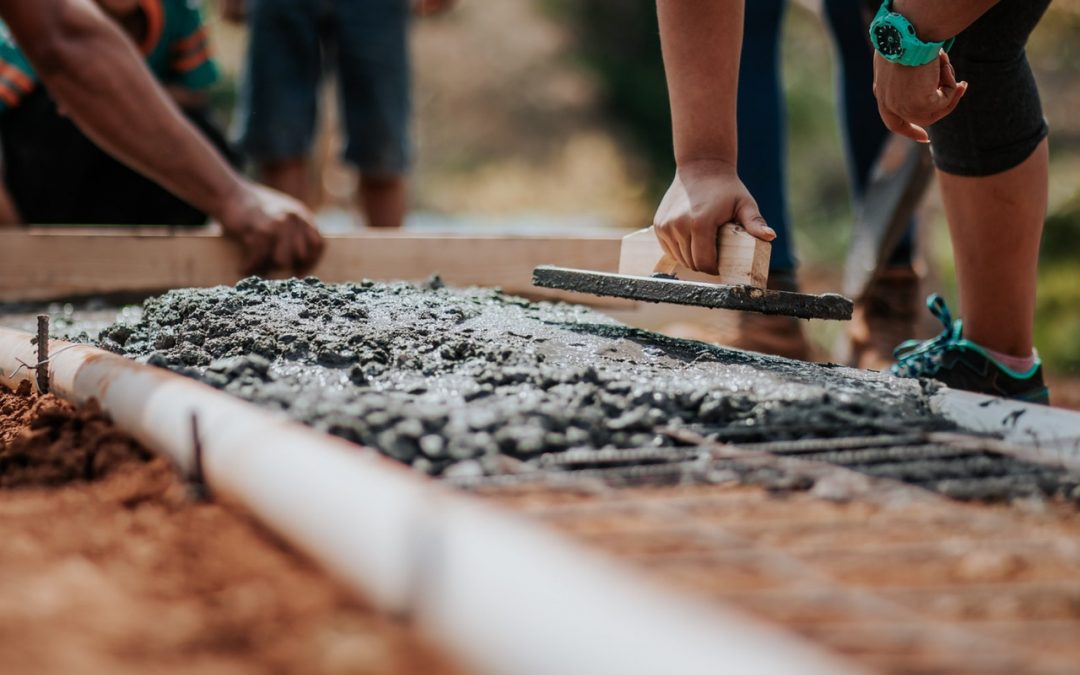
We believe that volunteers who are skilled and qualified for the job, who have an adaptable and humble attitude, and moreover, are able to stay abroad long-term have very good chances of making a sustainable impact on the hosting community and have a meaningful and worthy experience at the same time. But not all types of international volunteer projects can offer the same win-win opportunity. Some projects or positions within the projects are not only useless, but also potentially harmful to the local community.
Unqualified volunteering projects very often fall in this category of being harmful to the locals. Unqualified volunteering is when volunteers neither have the expertise nor the preparation (and often not even the time) needed to carry out the task. Often unqualified volunteer tasks are tailored around the needs of visiting tourists who are just hoping to make a difference during their short holidays and are unaware of the consequences of their actions. We believe this type of support could be very useful when applied in their home country when they’re giving their personal time serving food, packing boxes or other simple tasks during their free time, within a context, culture, language, and environment they’re familiar with. However, it’s a whole different story to do the same in a developing country such as Cambodia. Good intentions and having the heart in the right place simply aren’t enough.
The critical point is this: context matters. Here’s why.
1. You may take job opportunities away from locals
We see this on a daily basis here in Cambodia. Groups of foreigners of all ages, nationalities, and walks of life happily engaged in painting a fence, serving food, building a wall, digging a well, planting a garden, and feeding animals. These activities are entertaining for foreigner volunteers, who can see themselves accomplishing something in front of their very own eyes and have the rewarding feeling of providing real help in a short amount of time. However, the same tasks can, and actually should, be done by local carpenters, welders, painters, farmers, cleaners, and they should be paid for it. Whereas there may be a lack of skilled experts in more professional fields, surely even the poorest country would have an abundance of people who are able, willing and wanting to do these types of jobs.
In Cambodia, a manual labourer’s average salary is so little (approximately $2 a day) that it would not break the bank of even the smallest non-profit to hire them. If a non-profit indeed doesn’t have the budget, foreign volunteers should donate money to provide locals the jobs instead of replacing them for self-fulfilling purposes.
2. You may harm locals
Recently, an incident occurred at a Cambodian non-profit where a zealous, albeit unskilled, volunteer had tried to fix an electrical system at the non-profit and ended up causing a complete shutdown of the facility. The cost of fixing the shutdown may very well be higher than the cost of hiring a local electrician in the first place.
Imagine what could happen with volunteer home builders who are not skilled or equipped to build a house. Even under strict guidance, volunteers wouldn’t even have the same knowledge as native bricklayers for building local homes. Volunteers shouldn’t even be allowed to teach children in a classroom unless they’re certified teachers, let alone volunteers who take on the role of a nurse or a medical helper without the right qualifications.
It’s rather irrational and naive thinking that any help should be received graciously and gratefully regardless of the actual value added to the project, particularly when offered in a poor country by a foreigner.
3. You may allow yourself to do things abroad that you’d find unacceptable back home
Would you hire an unknown group of foreigners to work in your office without them having any idea of how to do the job, just because they really, sincerely, from the bottom of their heart wanted to help you ?
Would you feel safe living in a house built by people who have never done it before?
Would you accept your children to be taught or guided by people who are not qualified educators?
The bottom line is, would you find the lack of qualifications to be unacceptable when applied back home, but acceptable as a volunteer in a poor country?
Applying the concept of reciprocation
We do not want to throw the baby out with the water. Volunteering abroad can be (and often is) done in an ethical, sustainable way for the hosting community and in a meaningful way for the volunteer. There are also ways of doing it ethically even when you have little time and little experience to offer.
However, it is not a “plug and play” affair, and often the best help is not simply what your own two hands can do.
The concept of reciprocation is a good compass. Use this simple criteria: Do not do to others what you do not want done to yourself while making your decision regarding whether or not to participate in a particular volunteer project. If you find it unacceptable for an unqualified person to do a particular job for yourself, your family, your friends, your pets, your work place and your community, then you, as a similarly unqualified volunteer, should not do it elsewhere either. Instead, think about the professional skills you have to offer, and consider whether a professional volunteering trip is suitable for you.

